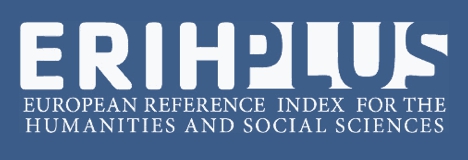Formation of a protestant heritage intangible in Fortaleza, Ceará
Abstract
The research analyzes protestant ritual practices, with the purpose of recording the formation of an immaterial evangelical heritage in Fortaleza, capital of Ceará, located in the Brazilian Northeast. The analysis follows a cultural approach based on humanistic geography taking into account the culture in the understanding of the landscape. This landscape is analyzed beyond materiality, to understand the dimensions of patrimonialization through a methodology that values the intentions of the subjects, having data collected from participant observation. These data have been interpreted according to the relevance of the ideas, allowing final considerations that reflect on the elitist character that limits cultural practices to the molds that control social groups and restrict the human creative capacity in the name of the notorious cultural patrimony.
References
____. Paisagem-marca, paisagem-matriz: elementos da problemática para uma geografia cultural. In: CORRÊA; ROSENDHAL. (orgs). Paisagem, tempo e cultura. 2ª. ed. Rio de Janeiro: EdUERJ, 2004 a.
____. La trajection paysagère. in: Hypergéo, lundi, 24 mai, 2004 b.
CAUQUELIN, Anne. A Invenção da Paisagem. São Paulo: Martins, 2007.
CLAVAL, Paul. A Geografia Cultural. Florianopólis: UFSC, 1999.
CORRÊA, Roberto Lobato; ROSENDHAL, Zeny. Apresentando Leituras sobre Paisagem, Tempo e Cultura. in: CORRÊA; ROSENDHAL. (orgs). Paisagem, tempo e cultura. 2ª. ed. Rio de Janeiro: EdUERJ, 2004
HERVIEU-LÉGER, Danièle. O peregrino e o convertido. A religião em movimento. Petrópolis: Vozes, 2008.
KELLNER, Douglas. A cultura da mídia. Estudos culturais: identidade e política entre o moderno e o pós-moderno. Bauru: EDUSC, 2001.
HOLZER, Werther. A geografia humanista: sua trajetória de 1950 a 1990. 1992. Dissertação (Mestrado em Geografia). Instituto de Geociências, Universidade Federal do Rio de Janeiro, Rio de Janeiro.
______. Uma discussão fenomenológica sobre os conceitos de paisagem e lugar, território e meio ambiente. Revista Território, v. 2, n. 3, p. 77-85, jul./ dez. 1997.
LEMOS, André. Cibercultura. Porto Alegre: Sulina, 2002
LÉVY, Pierre. Cibercultura. São Paulo: editora 34, 2007.
MARANDOLA Jr., Eduardo. Heidegger e o pensamento fenomenológico em geografia: sobre os modos geográficos de existência. Geografia, Rio Claro, v. 37, n. 1, p. 81-94, 2012.
MENESES, U. T. B. de. Os usos culturais da cultura. Contribuição para uma abordagem crítica das práticas e políticas culturais. In: YÁZIGI. CARLOS, Ana Fani A.; CRUZ, Rita de Cássia A. da. Turismo, espaço, paisagem e cultura. SP: Hucitec, 1996, p. 88-99.
OLIVEIRA, Christian D. M. de. Caminhos da festa ao patrimônio geoeducacional: como educar sem encenar geografia?. 1. ed. Fortaleza: Imprensa Universitária, 2014, 2014. v. 1. 237p.
______. Linguagens e Ritmos da Questão Patrimonial dos “Selos” as “Salas”: um patrimônio geográfico em construção. Geograficidade, v. 3, p. 19-32, 2013.
PASSOS, João Décio. Teogonias Urbanas: os pentecostais na passagem do rural ao urbano. São Paulo Perspec. [online]. 2000, vol.14, n.4, pp. 120-128.
POULOT, D. Uma História do Patrimônio no Ocidente, Século XVII-XXI: Do Monumento aos Valores; Tradução de Guilherme João de Freitas Teixeira. São Paulo: Estação Liberdade, 2009.
Keywords
Policy Proposal for Free Access Journals
Authors who publish in this journal agree to the following terms:
a. Authors retain the copyright and grant the journal the right of first publication, with the work simultaneously licensed under the Creative Commons Attribution License which allows the sharing of the work with acknowledgment of the authorship of the work and initial publication in this journal.
b. Authors are authorized to take additional contracts separately, for non-exclusive distribution of the version of the work published in this journal (eg publish in institutional repository or as a book chapter), with acknowledgment of authorship and initial publication in this journal.
c. Authors are allowed and encouraged to publish and distribute their work online (eg in institutional repositories or on their personal page) at any point before or during the editorial process, as this can generate productive changes, as well as increase the impact and The citation of published work (See The Effect of Free Access).





















